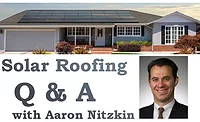On the Mark: CentiMark is at the Forefront of the Roofing Industry in North America and Shows No Signs of Slowing Down.

CentiMark has 120 employees with at least 20 years of service to the company, including the ones photographed here outside headquarters in Canonsburg, Penn. Among the longest-serving employees are (foreground, from left): Steve Hecht, Director of Group Purchasing Organizations (45 years); President and COO Tim Dunlap (38 years); Founder, Chairman and CEO Ed Dunlap (48 years); and John Rudzik, Executive Director CentiMark Foundation (39 years). Photos by Chandler Crowell Photography.

CentiMark offers its 3,500 non-union employees competitive benefits, an Employee Stock Ownership Plan (ESOP), and safety protocols rated among the best in the industry. Pictured are (from left): Jason Dewey, Scott Luck, John Champlin and Coy Wilson.


“We wanted to set up a situation where they (a customer) from anywhere in the country could pick up a phone 24/7 and we could send a team out to address their significant problem,” said CentiMark Founder Ed Dunlap. Photos courtesy of CentiMark.


Selling always came easy to Ed Dunlap. That much he knew — and held onto as a backup — if his plans for starting his own janitorial supply business fell through. What the Cleveland-based roofing materials salesman didn’t know in 1968 was that he was on his way to establishing one of the biggest and most successful roofing companies in the trade while embarking on an extraordinary business career most entrepreneurs can only dream of.
Northern Industrial Maintenance, the company Dunlap started in the basement of his home with $1,000, was the foundation of CentiMark.
Nearly five decades later, the commercial roofing and flooring juggernaut again sits atop Roofing Contractor’s Top 100 Roofing Contractors List for 2016 (see pages 42-48 for full coverage), reporting a whopping $540 million in revenue. It’s the fifth consecutive year CentiMark earned the top spot on the self-reported list and marks another year of being within the top two.
Revenue grew by roughly 10 percent in 2015, and despite challenges in the overall economy, national sales exceeded $600 million for the first time, officials said. CentiMark is in the midst of a 15-year growth cycle that today encompasses 80 locations across the United States and Canada that provide eight different roofing systems — from TPO and EPDM to metals and steep slope shingles.
“I didn’t even know how many zeroes there were in one million when I started, let alone 600 million… so that was the farthest thing from my mind,” Dunlap said when asked about his initial vision for the business.
The company is also diversified and has a wide array of ready-to-market service offerings ranging from patch and repairs and preventative maintenance to solar panel installation and customized digital account databases.
The Climb
Just before he launched his business, Dunlap’s previous employer relocated him to the Pittsburgh area. The timing was fortunate. U.S. Steel was king in the region and driving the American economy, and there was no shortage of industrial facilities that needed the cleaning chemicals and maintenance he provided. But Dunlap said the competition was fierce, and it took just about a year for him to realize there was a hole in the market for roofing contractors. He switched his primary focus to roofing, and the business took off with signs of enormous potential for future growth. The company really began to gain momentum after it started to perfect the application of EPDM roofing systems. Their popularity provided the capital needed for Dunlap to set his sights on expansion, but he was interested only in doing it organically.
“That was really the beginning,” he recalled. “We started a branch office in Ravenna, Ohio … then we decided to take the south on in Roanoke, Va., and gradually built it up to the point where it’s at today,” he said. “Everything was grown in-house. The only thing we acquired was good people in those areas.”
The model was challenging … but working. And, as he notes proudly, Dunlap stuck to it as other roofing companies — big and small — tried to realign the industry into regional or national conglomerates. He watched closely as the ‘roll-ups’ — his term for roofing companies that banded together to draw national business — floundered and came to an inevitable conclusion.
“They’ve all failed pretty much,” Dunlap said. “You can’t get 20 CEO’s in the same board room and expect to come up with any answers. Everybody has their own ideas and it just doesn’t work.”
“We’ve always felt growing from within and doing it in a slow, business-like fashion — one branch after another, one region after another — just seemed to work out.”
That philosophy carried over under the leadership of President and COO Tim Dunlap, Ed’s oldest son. Others did too, including CentiMark’s longstanding preference to avoid public bidding and instead generate business the old-fashioned way: taking care of current customers and not shying away from calling on prospects.
Tim Dunlap is the first to admit he’s learned the business inside out from his father and both of them proudly point out his ascension was hardly fast tracked — to say the least.
Tim was just 8 years old when his father started the company that would become his life’s work. The oldest of four siblings, he showed an interest in the business early on and always envisioned himself having a role. That interest intensified shortly after high school graduation and a brief stint in college.
“He talked me into giving college a shot and about two weeks after I started, I walked into a diner and told him I was done with school. That I had no interest and I wanted to get out on the roof,” he recalled, chuckling.
The older Dunlap said he hoped Tim would go to college to gain life experience and learn skills that would eventually enhance the family business. But he accepted and respected the decision.
“Well, I’ve had better meals at the diner. Put it that way,” he said, recalling how Tim broke the news during that lunch near company headquarters in Canonsburg, Penn. “He gave me a little bit of heartburn, but I figured, ‘you’re going to learn the business now because you’re getting on that roof.’”
It was 1978 — the year CentiMark started installing EPDM roofs and generating momentum. Tim, who was part of the company’s first EPDM job on a high school in nearby St. Mary’s, Penn., withstood the professional challenges and company growing pains. He was promoted to estimator after his first year and then entered the sales realm for roughly 15 years before eventually managing his own branch and then region of the country. He took over as president in 2003, 25 years after getting on his first roof.
“He always waited for me to come to him to pursue the next opportunity, and to make sure I was ready for the next level,” Tim said.
Strong Structure
CentiMark divides its territories into five geographic locations that are each led by a member of an executive committee spaced throughout North America. Other members of the committee are leaders in the areas of finance, sales, marketing, service and QuestMark, a division of CentiMark for commercial flooring.
In addition to the younger Dunlap, many of CentiMark’s executives, management and sales team leaders started out on the roof.
“That’s where you learn the business … out on the roof,” he said. “It’s where you learn the ropes.”
The loyalty and dedication shared by so many employees is by design. In addition to training and professional development, the company provides opportunities for relocation across the U.S. and part ownership in the company through its Employee Stock Ownership Plan (ESOP). Employees own a 30 percent stake in the company and have a vested interest in its continued success beyond just a paycheck. That trust was earned over time — in part — by CentiMark’s emphasis on quality and safety.
Incident rates company-wide are roughly 68 percent lower than the industry average, and in 2015-16, CentiMark reached an Experience Modification Rate (EMR) of .41 — lowest in company history.
In addition to a corporate safety and risk department, CentiMark has branch safety inspectors that serve field offices. Their primary responsibilities are project safety set-up and unannounced inspections to ensure compliance with all customer, federal and state regulations. Branch safety inspectors report directly to regional managers and work together with safety and operations personnel to improve compliance.
Operations managers conduct monthly safety meetings with all production and service employees to review general and job-specific safety needs. Regional safety specialists conduct mandatory safety meetings each and every quarter. When issues are identified, the regional safety specialists address them with periodic safety meetings that cover accident trends, potential jobsite problems and unannounced inspection reports.
CentiMark also has a safety-training certification program that’s comprised of 17 individual standardized safety-training units developed specifically for roofers. Each unit is offered annually, and training is provided by regional safety specialists who then ‘certify’ all company employees that complete their requirement.
“We’re committed to maintaining the same degree of success and reputation in safety as we have in the quality of roofing services that we provide,” Tim Dunlap said.
Moving Forward
CentiMark wouldn’t be where it is today without Ed Dunlap’s “big-picture” mindset. He doesn’t shy away from taking calculated risks and executing new ideas. Innovation was and still remains a priority.
Centimark is credited with becoming the first company to start a national accounts program in the construction industry.
Though small accounts were the company’s bread and butter at the time, CentiMark was starting to generate business with larger corporations with a national reach. Dunlap said it made sense to try and set up a part of the organization to call directly to large corporate accounts. He credits a lot of the success to Director of Group Purchases Steve Hecht, who’s still with the company after 45 years. One of Dunlap’s first hires, Hecht is among 120 employees with at least 20 years of service with the company.
Dunlap also brought single-source warranties into the mainstream, and directed the first national toll-free number for customers and telemarketing campaigns in the industry.
The innovations continued in the 1990s, when CentiMark began investing in technology. As the world evolved into the digital age, the company was right on the forefront, formulating programs and designing customized software in-house to manage the business more efficiently. It’s also enhanced relationships with customers.
With software built in house, officials can collect, store and analyze data directly from any roofing project ongoing around the country — in real time.
The cutting edge technology and success of the national accounts program combined drove the business to a whole new level. They also provided the Dunlaps with a road map to the markets with the highest demand, and that’s where they focused their long-term strategy for expansion. Revenues topped $100 million in 1994, and grew to $300 in the next decade.
“We wanted to set up a situation where they (a customer) from anywhere in the country could pick up a phone 24/7 and we could send a team out to address their significant problem,” Ed Dunlap said. “We were the only ones in the United States that could do that. The other companies just didn’t have the stretch that we did.”
Most still don’t, allowing CentiMark to continue dominating the field. And there are no signs of slowing down.
Each division runs its own five year forecast and the executive committee charts priorities for operations and investments to maximize growth. Dunlap said the company is experiencing roughly 8 percent growth from last year’s revenue during the first half of 2016.
While pleased, the Dunlaps note they aren’t necessarily satisfied. They openly state the next major milestone to eclipse is to become a billion-dollar corporation, and given their company’s history of consistently maintaining profitable growth, it’s widely believed to be just a matter of when, not if.
“I was never really in it for the money, it was to see how far you can get in America,” the elder Dunlap said. “I wanted to see how far we could go.”
Looking for a reprint of this article?
From high-res PDFs to custom plaques, order your copy today!







